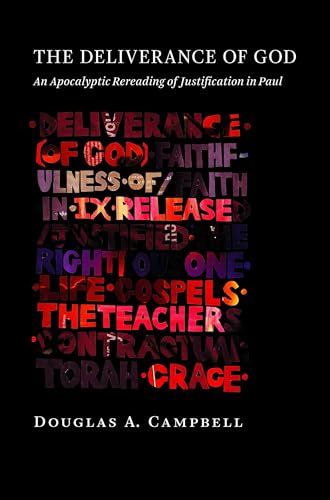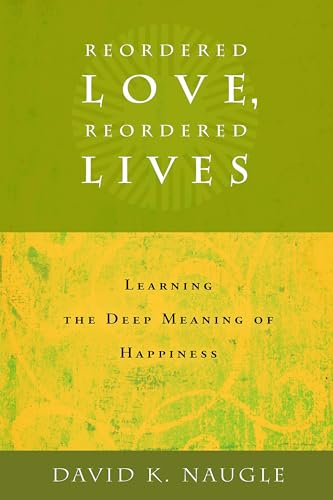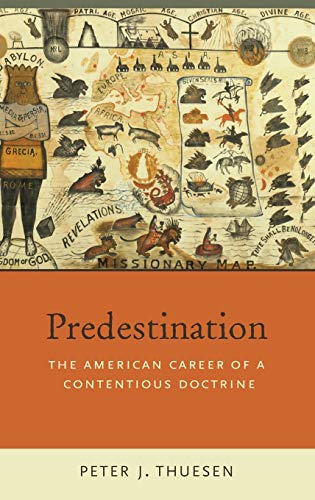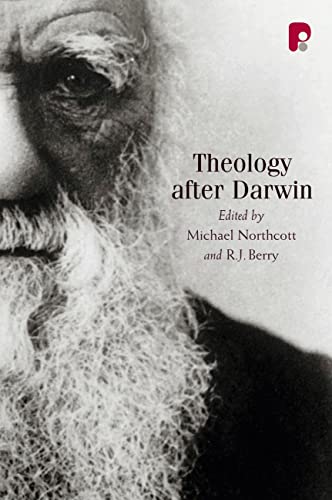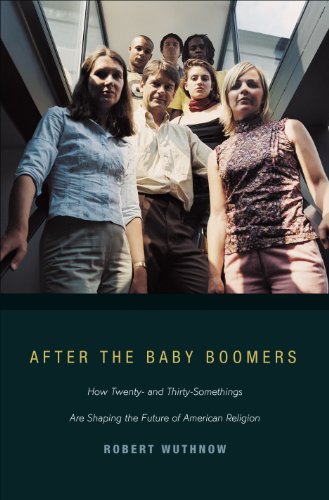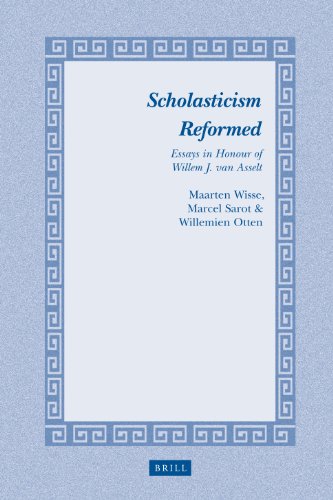The Deliverance of God: An Apocalyptic Rereading of Justification in Paul
Written by Douglas Atchison Campbell Reviewed By Mark A. SeifridTo my knowledge, there is nothing that quite matches this massive tour de force. To be sure, Campbell takes up many of the elements of Paul’s thought that have been the subject of debate, past and present, regularly affirming revisionist positions. The “faith of Christ” is Christ’s faith and faithfulness, and likewise the manifestation of God’s righteousness (Tom Wright). As the title already suggests, “righteousness” and “justification” have to do with the saving work of God, deliverance from the power of sin (as Käsemann, and many in his wake rightly have insisted). Paul’s soteriology is fundamentally participationist, as Deissmann, Schweitzer, and especially Wrede have claimed. Paul does not think in introspective, individualistic terms (Krister Stendahl). Most of the questions that have become part of academic debate make their appearance here. Campbell’s work is set apart by his thorough-going dissatisfaction with virtually all the work that has gone before him. No one seems to measure up to his standards. Indeed, while he regards his work in a sense as “deeply Protestant if not Lutheran” (p. 934), he also suggests that it is “an important step in the recovery of the authentic and orthodox Pauline gospel” (p. 935). Post tenebras lux!
In exegetical terms it is Campbell’s rereading of Rom 1:18–3:20 that is of greatest significance. The first section of this argument, Rom 1:18–32, is nothing other than the position of a false teacher, which Paul proceeds to dismantle in what follows (pp. 469–600). It is a novel interpretation, which ought perhaps to be considered briefly. But it is not likely to prevail.
Beyond his clear appeal to rhetorical analysis and apocalyptic theology, it is Campbell’s rejection of what he calls “Justification theory” (or sometimes “Justification”) that drives his work. That “theory,” in brief, has to do with a God of retributive justice, who condemns human beings for living up to the rational conclusions they can reach about the world around them, even though as fallen human beings they are unable to do so. Salvation is given on the condition of faith in Jesus, who paid off God for our sins, a condition that in Reformed theology is inconsistently joined to election and divine sovereignty (pp. 11–95). The main culprit is thus found within the Reformed tradition in “covenant theology.” Yet all Protestant theology seems more or less to share in this “Justification theory.” Even Catholic thought, in so far as it shares in an Anselmian understanding of the atonement as satisfaction, turns out to be defective. Rather than engaging the traditions in depth, Campbell constructs a straw man with whom he then holds his debate. His relatively brief discussion of Luther, Melanchthon, Calvin, and Augustine (pp. 247–83) does not deflect him from his critique of the model of Protestant thought that he himself has constructed. This abstract and artificial theological “debate” fatally weakens his work.
Errors in judgment unhappily abound. A single, fundamental problem may be mentioned here. The “Justification model” that Campbell rejects “achieves its soteriological pressure on individuals largely by arguing for the necessary prior perception of a forensically retributive God” (p. 16). It is not at all clear that this claim holds. Indeed, Luther’s reformational turn was precisely a rejection of a covenant-theology that requires the human being to fulfill a minimal condition in order to experience the otherwise overwhelming grace of God. Admittedly, the Reformed thought generally takes a different structure, with divine demand granted priority. But here, too, God’s grace and goodness more than meet his demands. The real question at stake is whether it is biblical and Pauline to speak of judgment and retributive justice in any form.
According to Campbell’s alternative, we ought to speak instead of a benevolent God who saves human beings without “coercive violence” by transforming them through Jesus. He finds this theology especially in Rom 5–8 (pp. 62–95, 931–36).
Several observations are in order. In the first place, one wonders what has happened to the right of the Creator over the human creature living in contention with him, as Käsemann rightly has underscored. Campbell somehow loses from view the understanding that he himself later articulates, namely, that God’s wrath expresses divine benevolence, the rejection of evil and the deliverance of those oppressed by it (p. 930). “Sin” is present in this world only as it is embodied in human beings and their deeds. The biblical, and consequently Christian expectation of a final judgment is the hope for the rectification of all things. To say that Protestant theology (in Campbell’s terms, “Justification”) can offer no coherent protest in relation to the Holocaust (p. 206) is blatantly false. Quite the opposite: it is Campbell’s proposal of transformation without judgment that fails the test. It is not enough to hope that the perpetrators at Auschwitz should be transformed. There has to be an accounting for their deeds. One can hardly read the Psalmists without seeing their hope for vindication and justice. Paul has certainly done so, and richly cites them, particularly in the catena of Rom 3:10–18. The wonder of it all is that God deigned in Christ to humble himself and become the victim of our violence: the feet that are swift to shed blood, shed his blood (Rom 3:15, 25). In Christ’s cross and resurrection, our violent rejection of both God and our neighbor meet with judgment—and forgiveness. Indeed, there can be no forgiveness where there is no judgment.
Similar criticisms might be directed to Campbell’s complaint about making “faith” a condition of salvation: unless human beings are to be regarded as nothing more than blocks of wood or stone, some accounting of human response to the Gospel has to be rendered. Likewise, Campbell’s attempt to do away with the individual dimension of Paul’s thought fails from the start. A decided individualism, and unhealthy one at that, necessarily must creep into his own transformationist views: all of us are transformed, but some are more transformed than others.
It is truly a pity that this massive work, into which so much labor and intense study obviously has been invested, should bear such fundamental flaws. One can only admire Campbell’s effort and pray that in the future it might be crowned with greater success.
Mark A. Seifrid
Mark A. Seifrid
The Southern Baptist Theological Seminary
Louisville, Kentucky, USA
Other Articles in this Issue
Most of us, I suspect, develop fairly standard ways, one might even say repetitive ways, to appeal to the motivations of our hearers when we preach the gospel...
How to Write—and How Not to Write—A Review: An Appreciative Response to Reviews of Ancient Near Eastern Themes in Biblical Theology by Dempster and Edgar
by Jeffrey J. NiehausI want to thank Themelios for the unusual opportunity to interact with two reviewers of my book Ancient Near Eastern Themes in Biblical Theology...
Parallels, Real or Imagined? A Review Article of Jeffrey J. Niehaus, Ancient Near Eastern Themes in Biblical Theology
by William EdgarWhen I came to Westminster Theological Seminary in Philadelphia as a young student in the 1960s, two things struck me...
Why Evangelicals Should Ignore Brian McLaren: How the New Testament Requires Evangelicals to Render a Judgment on the Moral Status of Homosexuality
by Denny BurkIn 2006 on Christianity Today’s leadership blog, Pastor Brian McLaren urged evangelical leaders to find a “Pastoral Response” to their parishioners on the issue of homosexuality...
A Member of the Family or a Stranger? A Review Article of Jeffrey J. Niehaus, Ancient Near Eastern
by Stephen DempsterWe cannot overstate how important knowing the context is for understanding the significance of any communication, whether that is a simple word, sentence, paragraph, larger text, sign, photograph, or cultural cue...


